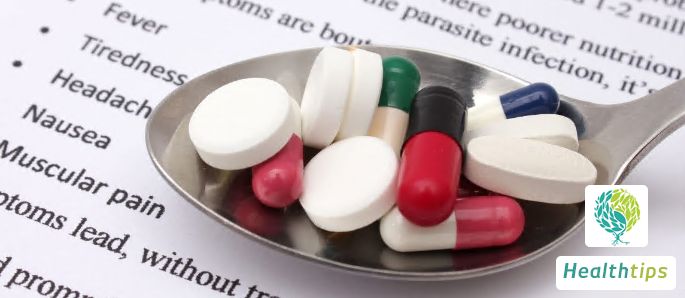Triple therapy and quadruple therapy are mainly used to treat Helicobacter pylori infection. Triple therapy mainly refers to the use of one proton pump inhibitor and two antibiotics, while quadruple therapy refers to the combination of one proton pump inhibitor, one bismuth agent, and two antibiotics. Helicobacter pylori is a microaerobic, spiral, gram-negative bacterium colonized in the gastric mucosa, which is the main pathogenic factor causing chronic gastritis and peptic ulcer, and is closely related to gastric cancer, gastric mucosa-associated lymphoid tissue lymphoma and other diseases.
 Initially, triple therapy was the most commonly used treatment, but now quadruple therapy is the main approach. The triple therapy regimen includes the use of a proton pump inhibitor (such as omeprazole) as the basis for the treatment, combined with two antibiotics. Among them, clarithromycin, amoxicillin, or metronidazole are the most commonly used antibiotics. The combination of these drugs is taken for 7 days as a course of treatment. If the initial treatment fails, quadruple therapy can be tried, which combines one proton pump inhibitor, one bismuth agent, and two antibiotics. The usual duration of this treatment is 14 days. It is recommended to consider retesting for Helicobacter pylori after stopping the medication. If Helicobacter pylori infection occurs, it is recommended to actively cooperate with the treatment. The specific use of drugs should be in accordance with the drug instructions or prescribed by a doctor in a formal hospital.
Initially, triple therapy was the most commonly used treatment, but now quadruple therapy is the main approach. The triple therapy regimen includes the use of a proton pump inhibitor (such as omeprazole) as the basis for the treatment, combined with two antibiotics. Among them, clarithromycin, amoxicillin, or metronidazole are the most commonly used antibiotics. The combination of these drugs is taken for 7 days as a course of treatment. If the initial treatment fails, quadruple therapy can be tried, which combines one proton pump inhibitor, one bismuth agent, and two antibiotics. The usual duration of this treatment is 14 days. It is recommended to consider retesting for Helicobacter pylori after stopping the medication. If Helicobacter pylori infection occurs, it is recommended to actively cooperate with the treatment. The specific use of drugs should be in accordance with the drug instructions or prescribed by a doctor in a formal hospital.




















